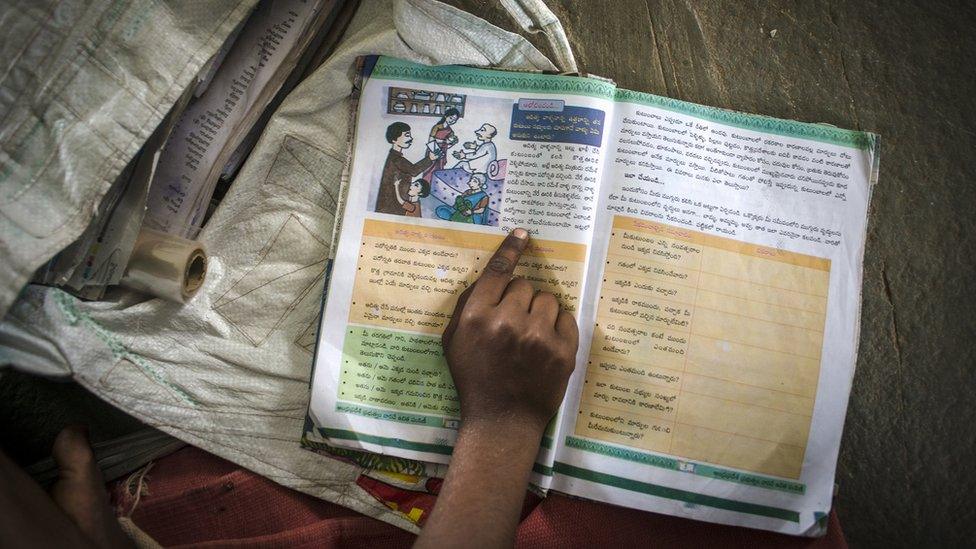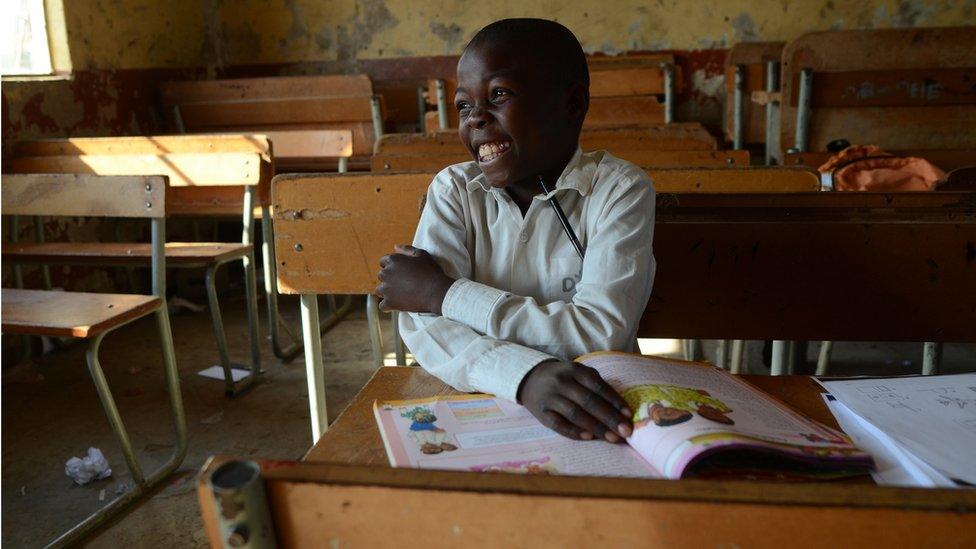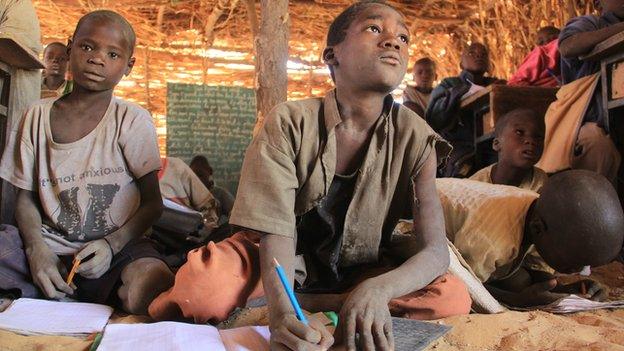Pupils in poor countries lack textbooks, says Unesco
- Published

Unesco says there needs to be a better way of buying and distributing textbooks
Pupils in the poorest countries are suffering from a lack of basic textbooks, according to a report from a United Nations agency.
The study from Unesco gives examples such as reading books in Cameroon being shared between 12 students.
The report is calling for a more centralised buying system which would make them more affordable.
Report director Aaron Benavot says textbooks are an important way of raising standards in school.
"Next to a good teacher, well-designed textbooks in sufficient quantities are the most effective way to improve students' learning," says Mr Benavot, director of Unesco's Global Education Monitoring Report.
The report suggests the process of distributing textbooks should be approached in the same systematic way as public health programmes.

Individual textbooks would be a direct way of improving literacy, says report
"We must learn from health and set up a new system so that textbooks can move cheaply and effectively from a printing house to school and into the hands of children," says Mr Benavot.
Unesco says that hundreds of millions of pounds could be saved by a better co-ordinated procurement process.
At present, the different distribution systems around the world, which mean that many pupils have no meaningful access to books, suffer from unreliable funding, a lack of transparency about how money is spent and a failure in predicting demand.
The lack of availability of textbooks from schools means that many families would have to pay for their own copies, which would be unaffordable to the poorest.
Unesco says that in 12 African countries, paying for schools accounts for a third of total household spending.
The report warns that rising numbers of pupils in countries such as Kenya, Malawi and Namibia are making textbooks even scarcer.
There is a warning of a lack of spending on textbooks by governments, with some using less than 1% of education budgets on books.
The Unesco study claims that providing one textbook per pupil in sub-Saharan African countries would increase literacy scores by between 5% and 20%.
The report highlights that the lack of textbooks is not limited to Africa as there are also many pupils without books or having to share them in Paraguay and Argentina.
There have been warnings from the OECD economic think tank that the amount of overseas aid to the poorest countries is falling, as international aid is increasingly being diverted to the Syrian refugee crisis.
- Published29 January 2014

- Published6 January 2016
